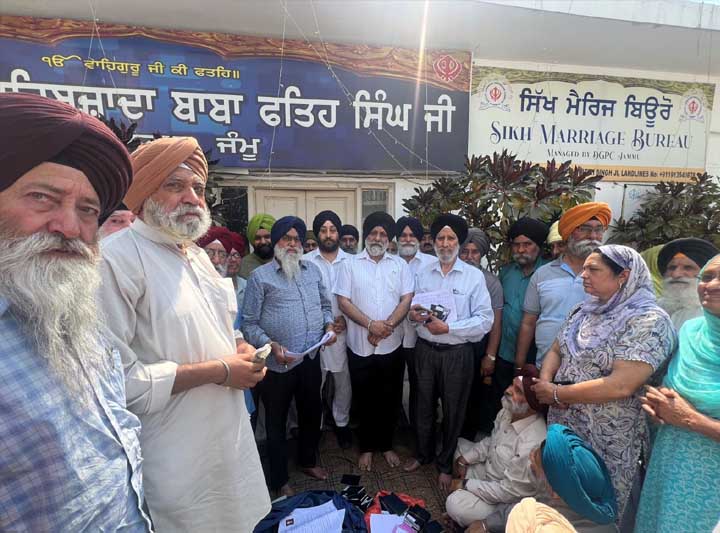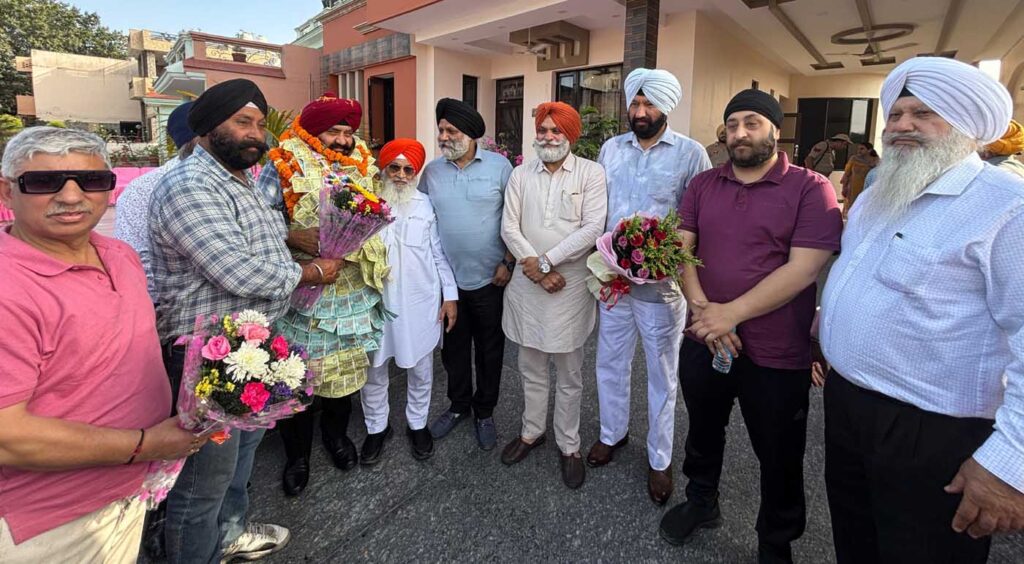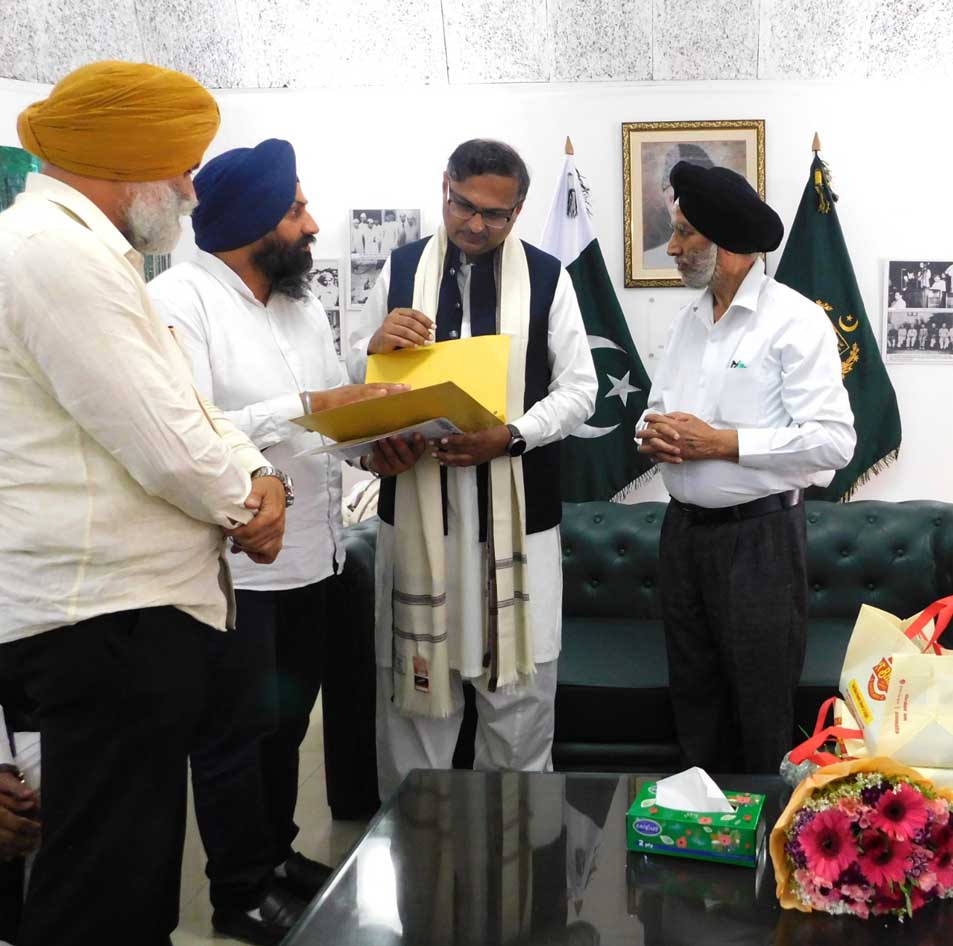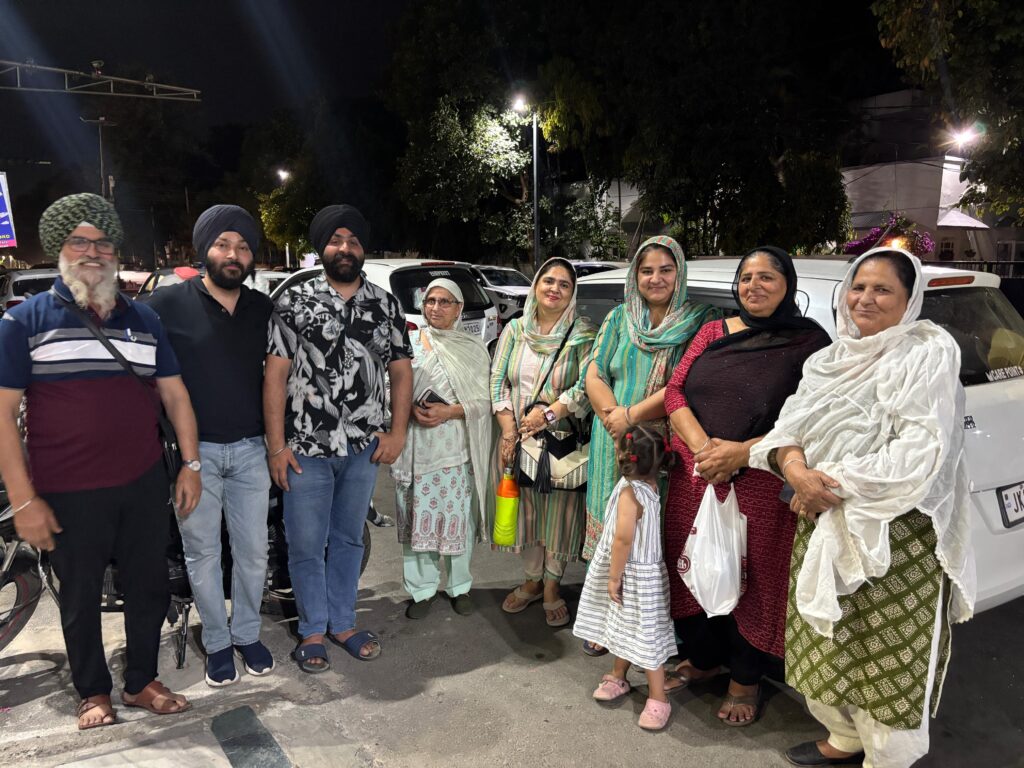Jammu and Kashmir Sikh Jatha visits Pakistan for Khalsa Sajna Diwas
Sikhs of Jammu and Kashmir are happy that like the members of the Sikh community from across India, all the 261 applicants for visa to visit Pakistan Gurdwaras during Baisakhi have been granted visas. This has become possible due to the initiative of the District Gurdwara Parbandhak Committee Jammu’s efforts in taking up the matter with the Pakistan embassy in New Delhi. WSN reports.
![Sikhs of Jammu and Kashmir are happy that like the members of the Sikh community from across India, all the 261 applicants for visa to visit Pakistan Gurdwaras during Baisakhi have been granted visas. This has become possible due to the initiative of the District Gurdwara Parbandhak Committee Jammu’s efforts in taking up the matter with the Pakistan embassy in New Delhi. WSN reports. In a moment of joy and spiritual significance, 261 members of the Sikh community from Jammu […]](https://www.theworldsikhnews.com/wp-content/uploads/2025/04/Jammu-and-Kashmir-Jatha-to-Pakistan-slider-360x267.jpg)
In a moment of joy and spiritual significance, 261 members of the Sikh community from Jammu and Kashmir have been granted visas to visit historical Gurdwaras in Pakistan for the Khalsa Sajna Diwas (Baisakhi) celebrations. This marks a landmark achievement, as it is the first time in many years that all applicants from the region have received approval for the pilgrimage, which coincides with one of the holiest days in the Sikh calendar.
This unprecedented success has been made possible through the dedicated efforts of the District Gurdwara Parbandhak Committee (DGPC) Jammu, which proactively pursued the matter with the Pakistan High Commission in New Delhi.
Similarly, the Shiromani Gurdwara Parbandhak Committee (SGPC) Amritsar also managed to get visas for all their applicants.
Social activist Shamsher Singh Cholavi, who has been dedicatedly serving the cause for the past 30 years was elated at the response of the Sangat and the cooperation of the Pakistan High Commission.

Joyful Departure from Jammu
Early in the morning, scenes of elation unfolded in Jammu as men, women, and children gathered with their families to embark on the sacred journey. Dressed in traditional attire and singing hymns, the pilgrims boarded buses that would take them to the Wagah-Attari border, where they would cross into Pakistan.
For many, this journey is more than a pilgrimage — it is a return to ancestral lands. Several elderly members of the group broke into tears, recalling how their forebears once lived in what is now Pakistan before the Partition of 1947. For a few younger pilgrims, this is their first opportunity to visit the Gurdwaras of their ancestors, places they had only heard about in stories passed down through generations.
“This is a dream come true,” said an elderly Sikh, a resident of Poonch district. “I have waited my whole life to bow my head at Gurdwara Panja Sahib and Gurdwara Nankana Sahib. I never thought I would see this day.”

Overcoming Bureaucratic Barriers
The usual visa process for visiting Gurdwaras in Pakistan is often fraught with delays and procedural obstacles. In the past, only a limited number of Sikh pilgrims from Jammu and Kashmir could secure visas due to administrative hurdles or political tensions. However, this year’s success story is different. The DGPC Jammu, led by its president and senior members made strenuous timely efforts to obtain visas for all.
Their appeals were met with responsiveness and empathy by Pakistan’s High Commissioner in New Delhi, Mr. Saad Ahmad Warraich, who expedited the process and ensured that the visas were issued in record time. This development reflects a rare moment of cooperation and goodwill, demonstrating that spiritual and cultural exchanges can transcend political divides.
A Record-High Quota of 6700 Pilgrims
Under the longstanding Indo-Pakistan Protocol on Visits to Religious Shrines, a quota of 3,000 Sikh pilgrims is usually allowed to visit Pakistan for Baisakhi. However, in a significant gesture this year, the Evacuee Trust Property Board (ETPB) in Pakistan, which oversees the management of Sikh and Hindu religious properties, recommended a larger quota. The Government of Pakistan, acceding to this request, approved visas for as many as 6,700 Sikh pilgrims — more than double the traditional number.
This generous expansion has enabled not just those from Punjab and other parts of India to participate, but has especially benefitted historically underserved regions such as Jammu and Kashmir, where the Sikh community has long sought equal participation in religious pilgrimages.
SGPC and DGPC Thank Pakistan Envoy
 The SGPC in Amritsar and the DGPC Jammu have expressed profound gratitude to the Pakistan High Commission for its support and timely intervention.
The SGPC in Amritsar and the DGPC Jammu have expressed profound gratitude to the Pakistan High Commission for its support and timely intervention.
Jagpal Singh, who led the efforts on behalf of the DGPC Jammu, said, “We are deeply thankful to High Commissioner Saad Ahmad Warraich for understanding the sentiments of the Sikh community and ensuring that our pilgrims from Jammu and Kashmir were not excluded. This gesture will be remembered for years to come.”
The SGPC President Harjinder Singh Dhami, in a communique to the Pak envoy, expressed deep gratitude and hoped that this will continue in the future too.
“We are deeply thankful to High Commissioner Saad Ahmad Warraich for understanding the sentiments of the Sikh community and ensuring that our pilgrims from Jammu and Kashmir were not excluded. This gesture will be remembered for years to come.”
Pilgrimage Itinerary
The 261 pilgrims from Jammu and Kashmir are expected to visit some of the most sacred Sikh sites in Pakistan over the next several days. These include:
- Gurdwara Panja Sahib in Hasan Abdal, associated with Guru Nanak Dev Ji.
- Gurdwara Nankana Sahib, the birthplace of Guru Nanak.
- Gurdwara Dera Sahib in Lahore, the site of martyrdom of Guru Arjan Dev Ji.
- Gurdwara Kartarpur Sahib, the final resting place of Guru Nanak, now accessible via the Kartarpur Corridor for pilgrims from India.
Many of the pilgrims will also take the opportunity to explore heritage sites and reconnect with historical narratives that form an integral part of Sikh identity in the subcontinent.

A Step Toward Healing and Harmony
This year’s successful visa issuance to Sikh pilgrims from Jammu and Kashmir offers a glimmer of hope at a time when relations between India and Pakistan remain strained. Spiritual diplomacy — the free movement of pilgrims to religious shrines — can play a powerful role in reducing tensions, building trust, and reconnecting communities with their cultural and spiritual roots.
For the Sikh community of Jammu and Kashmir, often marginalized in larger discourses, this moment is one of recognition and affirmation — a chance to be seen, heard, and spiritually uplifted.
As the buses rolled out of Jammu city, chants of “Bole So Nihal…Sat Sri Akal!” echoed through the air, reminding all that the spirit of faith and fraternity can overcome even the most persistent of borders.


 14
14


